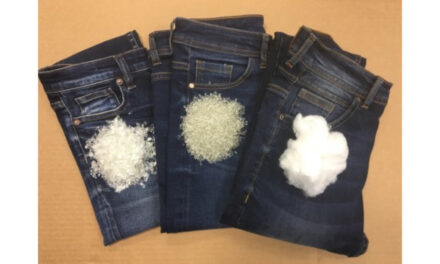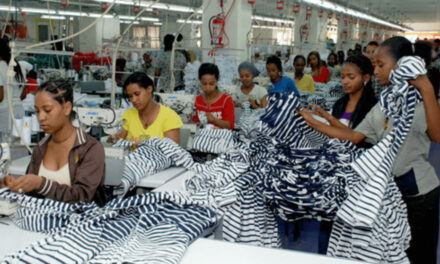Coinciding with World Water Day, Wrangler® has announced it is working with major denim suppliers around the world to adopt a revolutionary water-saving technology. Wrangler identified the potential of this advanced technology and provided technical support, early-stage investment and promotion within the denim industry. “We’re excited our suppliers are very interested to adopt this breakthrough dyeing technology,” said Wrangler Sustainability Director, Roian Atwood, “because it will drastically reduce the water footprint of the denim in our products.”
If all of Wrangler’s denim suppliers adopted the technology, it would save enough water to supply the daily needs of 150,000 Americans for an entire year. That’s equivalent to the population of Fort Collins, Colo.; Escondido, Calif.; Savannah, Ga. or Hartford, Conn. So far, one of Wrangler’s major denim suppliers already has invested in the technology for implementation in 2019, and several others (representing about 50 percent of Wrangler’s denim supply) are actively considering the technology upgrade as well.
The Indigo ZERO™ process, developed at Texas Tech University and commercialised by Indigo Mill Designs (IMD), uses foam to apply blue indigo dye to cotton yarn, instead of water. The process results in net reductions of water and energy usage of more than 90 percent. In addition, the foam-dyeing process reduces chemical usage while achieving the same or better dye quality compared to conventional processes.
“Wrangler has been instrumental in advancing the technology and driving adoption by connecting with fabric mills around the world,” said Ralph Tharpe of IMD. “Discussions are progressing well, and we hope this marks the beginning of an industry-wide transition to foam-dyeing for denim.” Since 2007, Wrangler has saved more than 3bn ltr of water through technology upgrades. By 2020, the brand aims to increase that figure to 5.5bn ltr. To achieve this goal, Wrangler also is promoting water-saving practices for cotton farmers and testing new technology for recycling water indefinitely in its own wash-down facilities.



















